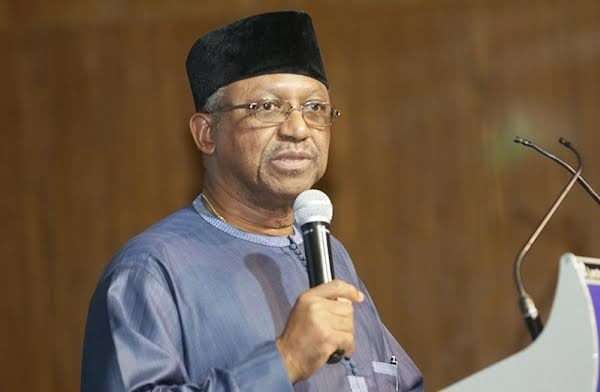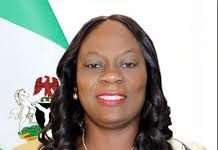
The Minister of Health, Dr Osagie Ehanire, says joint effort is required to reduce out-of-pocket health expenditure, improve health system efficiency, increase government spending on healthcare and expand prepayment coverage and financial risk protection mechanisms.
This is as N104.1 billion was disbursed under the Basic Healthcare Provision Fund (BHCPF) to over 7,600 Primary Healthcare Centres (PHCs) as at November.
Ehanire said this on Thursday in Abuja at the opening ceremony of the 63rd Session of the National Council on Health (NCH).
The News Agency of Nigeria (NAN) reports that the five-day meeting which commenced on Monday has “Building Resilient Health and Sustainable Health Systems for Improved Health Outcomes and Universal Health Coverage” as theme.
Ehanire said according to the 2020 National Health Account, total government health expenditure was 14.6 per cent of total health expenditure, with expenditure on primary healthcare accounting for only 4.6 per cent of current health expenditure.
This, he said, was a pointer for more investments in revitalisation of PHCs.
“General health expenditure as percentage of government expenditure increased from 6.2 per cent in 2019 to 8.2 per cent in 2020, a reflection of the increased spending on health relative to other sectors during COVID-19.
“Although general government health expenditure increased, it was not enough to reduce out of pocket expenditure which increased from 71.5 per cent in 2019 to 72.8 per cent in 2020, still far off our target of less than 40 per cent.”
He also said that the COVID 19 pandemic drew attention to vast opportunities for strategic partnerships and investment in health.
According to him, capital flight from medical tourism continues to put pressure on scare foreign exchange reserve but that the government was exploring partnerships that will produce investments in the health sector.
He added that the government was especially taking into consideration existing opportunities in manufacturing including drugs and laboratory and other consumables, medical facilities and super specialist hospitals and even in health technology and infrastructure.
“One of such partnerships is with Afreximbank for which Nigeria won a bid to host the regional center for medical excellence and groundbreaking has been done to kick off the super hospital.
“The African Medical Centre for Excellence will provide specialist care and training of specialist human resources for health.
“A conducive environment for the establishment of more of such super centers across the country is at our fingertips”, the minister said.
According to Ehanire, a strong, resilient health system is the best line of defence against pandemics and any public health challenge, saying the COVID-19 pandemic is still raging.
He said that the key lesson learnt was the continental realisation by Africa that it needed a new public health order that was resilient, adaptable and ready to cope with any disease threats.
He explained the new public health order rested on four pillars which were strengthened continental and national public health institutions, local manufacturing of vaccines, therapeutics, and diagnostics, attraction, training, and retention of a public health workforce; and fostering of respectful local and international partnerships.
Ehanire, however, said that Nigeria was making progress toward achieving its targets for COVID-19 vaccination.
“In spite of challenges, including vaccine hesitancy and security concerns in many parts of our country, about 58 million eligible persons have been fully vaccinated while over 70 million have received at least one dose of COVID-19 vaccine so far.
“We can achieve our 70 per cent coverage needed to acquire herd immunity against COVID-19 virus by the end of the year if states and local governments put more efforts in mobilising and vaccinating eligible people.
“Our routine immunisation is showing progress in spite of COVID-19 pandemic, as indicated in the 2022 Multiple Indicator Cluster Survey/National Immunisation Coverage Survey results.
“And we are among 10 countries where COVID- 19 pandemic has not significantly distracted from routine immunisation coverage.”
In a goodwill message, a representative of the United Nations Children’s Fund (UNICEF), Ms Dorothy Ochola, said that theme of meeting reflected a conscious attempt by the government, its partners to renew their collective commitment.
She added that the collective commitment was to deliver the Sustainable Development Goals (SDGs) in the “Decade of Action”.
She said she hoped that recommendations arising from the meeting would be matched with deliberate actions towards achieving tangible, equitable and sustainable results for Nigerians, especially women and children.
She added this would be in line with the SDGs vision of “leaving no one behind”.
According to her, PHC system strengthening has become an urgent global concern because the COVID-19 pandemic has exposed and exacerbated preexisting weaknesses across health systems.
“Therefore, it is pleasing to note that governments at national and subnational levels have answered the call to action for strengthening PHC systems.
“UNICEF continues to stand shoulder to shoulder with the government in implementing key PHC policies.
“We are supporting efforts to ensure that these policies find practical expression at the subnational level, where the actual health service delivery happens.”
On his part, Dr Olumide Okunola, a senior Health Specialist at the World Bank, said that Nigeria was much delayed in demographic transition such that reaping any dividend from it was almost a challenge.
“The transition where countries move from high mortality and high fertility to the level of no mortality and low fertility.
“So, it means that that this type of meetings is where we need to proffer innovative and real life solutions to make a difference.
“The future of Nigeria is not in fuel and fossils, the future of Nigeria is in the decisions that those of us in this room make for Nigeria’s human capital,’’ he added.
Mr Paul McDermott, the Director of Health, Population and Nutrition at USAID Nigeria, said that primary healthcare access for all Nigerians was one of the most cost-effective approaches to improving the health of citizens.
On family planning, he said that in recent years, there had been growing gaps in funding for family planning commodities in the country.
He added that without those commodities, progress towards SDG Three and attainment of universal health coverage was nearly impossible.
He urged the NCH to propose solutions to addressing the commodities gaps.
“For example, the council can consider the use of “sin taxes”, like the sugar sweetened beverage tax, to offset the additional funds needed to cover it.
“We will also request the council to examine closely ways that family planning and reproductive health can be more explicitly captured in implementation plans for the National Health Insurance Authority Act.”
The News Agency of Nigeria (NAN) reports that the NCH is the highest policy making body in the Nigeria health sector.
It is a platform where council members and stakeholders meet and interact to consider, deliberate on and chart ways forward on health issues of national importance. (NAN)(www.nannews.ng)











